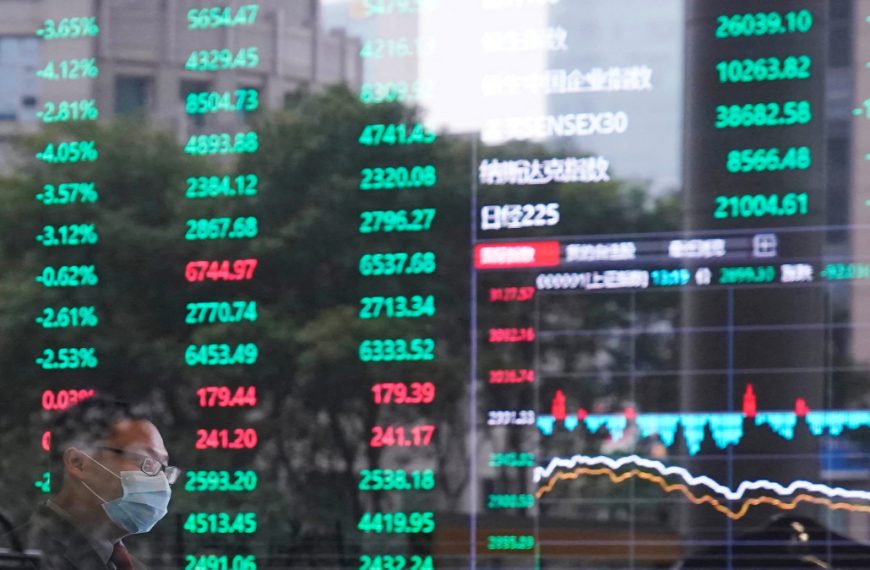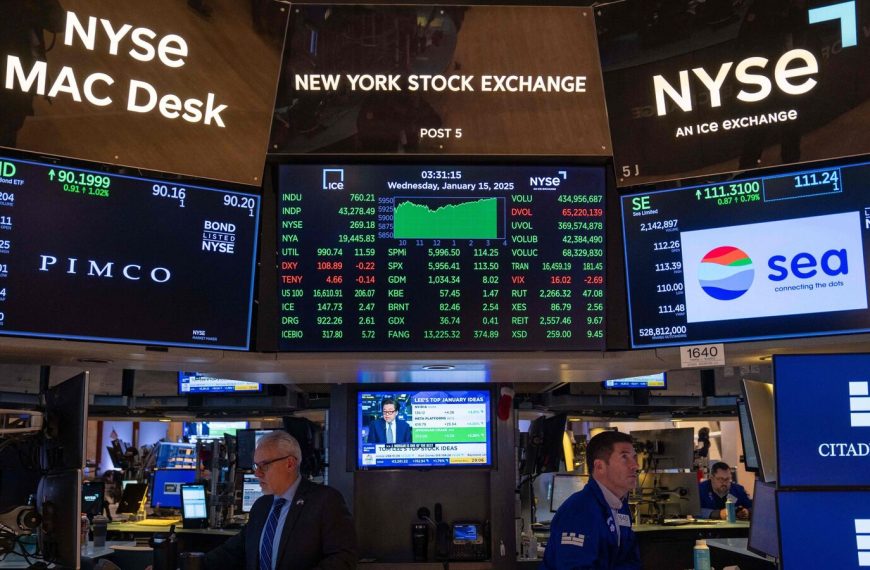The KBW Regional Banking Index has experienced a significant decline, dropping 13% following the announcement of new tariffs affecting various countries late Wednesday. This downturn has particularly impacted regional banks, with Western Alliance Bancorp and East West Bancorp each witnessing a 19% drop in their stock prices. Additionally, First Horizon Corp. and Zions Bancorp have seen their shares fall by 15%, highlighting the widespread effects of these tariffs.
Shifting Economic Landscape
At the start of 2023, regional banks were optimistic about returning to a growth-focused strategy after enduring a tumultuous crisis. The Federal Reserve’s decision to lower interest rates, combined with a promising pro-growth agenda from the new presidential administration, fueled hopes for a brighter economic outlook. However, the introduction of tariffs under former President Trump’s administration has shifted this narrative dramatically.
Instead of fostering growth in gross domestic product (GDP), initial public offerings, and business expenditures, the new trade policies—specifically the potential for 50% import taxes on Chinese goods—are leading economists to foresee an impending recession. Former Trump supporters on Wall Street have begun to express concerns over the trade strategies that are unsettling global markets.
Analysts Weigh In
"Investor sentiment has notably worsened due to rising uncertainty and market volatility," noted analysts from Raymond James & Associates in a recent research report. They further commented that this heightened uncertainty has resulted in reduced sector allocations among investors.
Unlike the regional bank stock crash witnessed in spring 2023, the current declines are part of a larger market selloff. Trump’s tariff plans have reportedly erased about $10 trillion from global equity markets. The specific impact on certain companies varies depending on investors’ strategies, as the full effect of the tariffs on various industries remains unclear.
Brian Foran, a managing director at Truist Securities, explained, "While it is tempting to generalize, such as saying consumer discretionary stocks might be the most vulnerable, the reality is that the situation is fluid, and we are still assessing which sectors can adapt and which cannot."
The Diverging Fortunes of Banks
While larger banks are grappling with diminished loan demand, they are somewhat cushioned by increased trading revenues due to market fluctuations. On the other hand, regional banks, which primarily rely on lending, find themselves in a more precarious position. Analysts from JPMorgan Chase & Co. expressed a cautious stance on bank stocks, favoring Global Systemically Important Banks (GSIBs) over regional banks, especially those with diverse revenue streams.
The pressure on regional banks is likely to persist, even for those that have adopted a diversification approach. For instance, U.S. Bancorp was downgraded to "underweight" by JPMorgan last Thursday, as analysts believe its investments in the banking sector may struggle amid merger uncertainties. Additionally, its substantial payments business could suffer from reduced consumer spending, and its credit-card portfolio—accounting for 8% of total loans—faces potential high losses compared to competitors.
A Stronger Foundation
Despite these challenges, regional banks have fortified their positions by addressing previous crisis-related issues. They have successfully expanded retail deposits to reduce reliance on expensive wholesale funding and have restructured bond portfolios to mitigate pricing gaps that resulted in unrealized losses. Furthermore, banks have proactively set aside capital in anticipation of stricter regulations.
Terry McEvoy, a managing director at Stephens Inc., shared a more optimistic view, stating, "The current atmosphere feels different. Unlike the banking crisis of spring 2023, today’s challenges are more reflective of broader economic issues."
As regional banks navigate these turbulent times, the path ahead remains uncertain, but their resilience and adaptive strategies may offer a silver lining in a shifting economic landscape.











